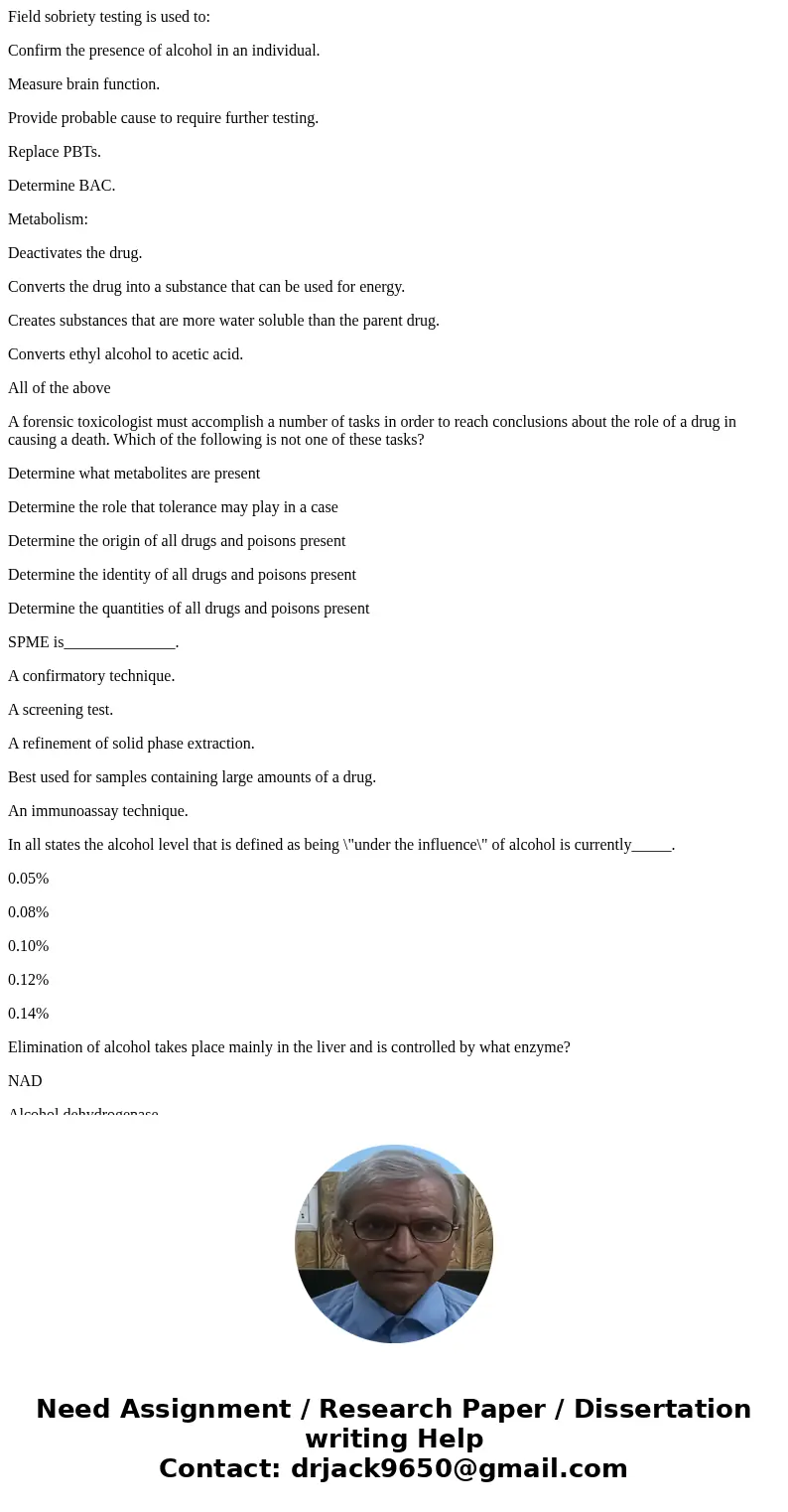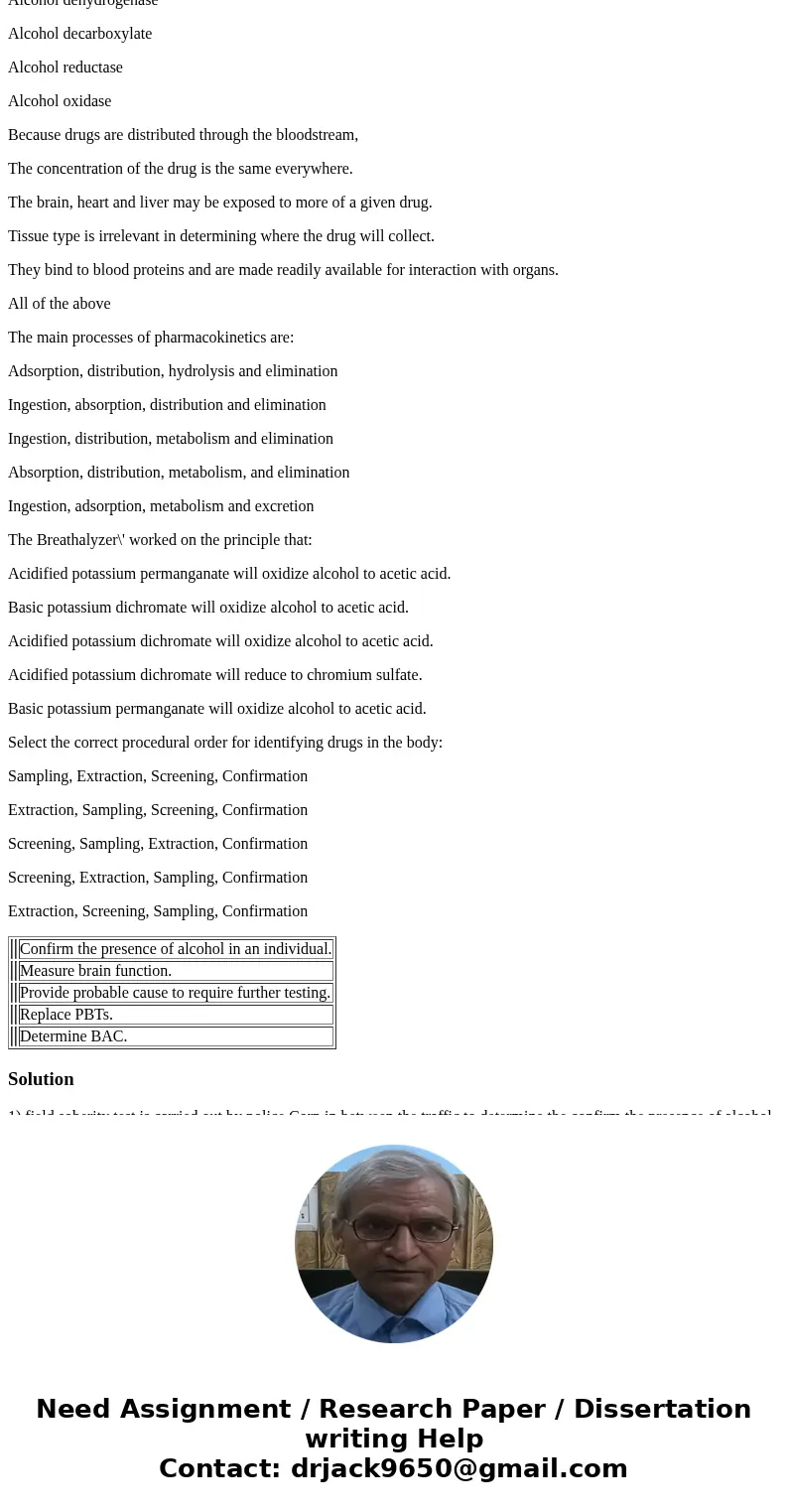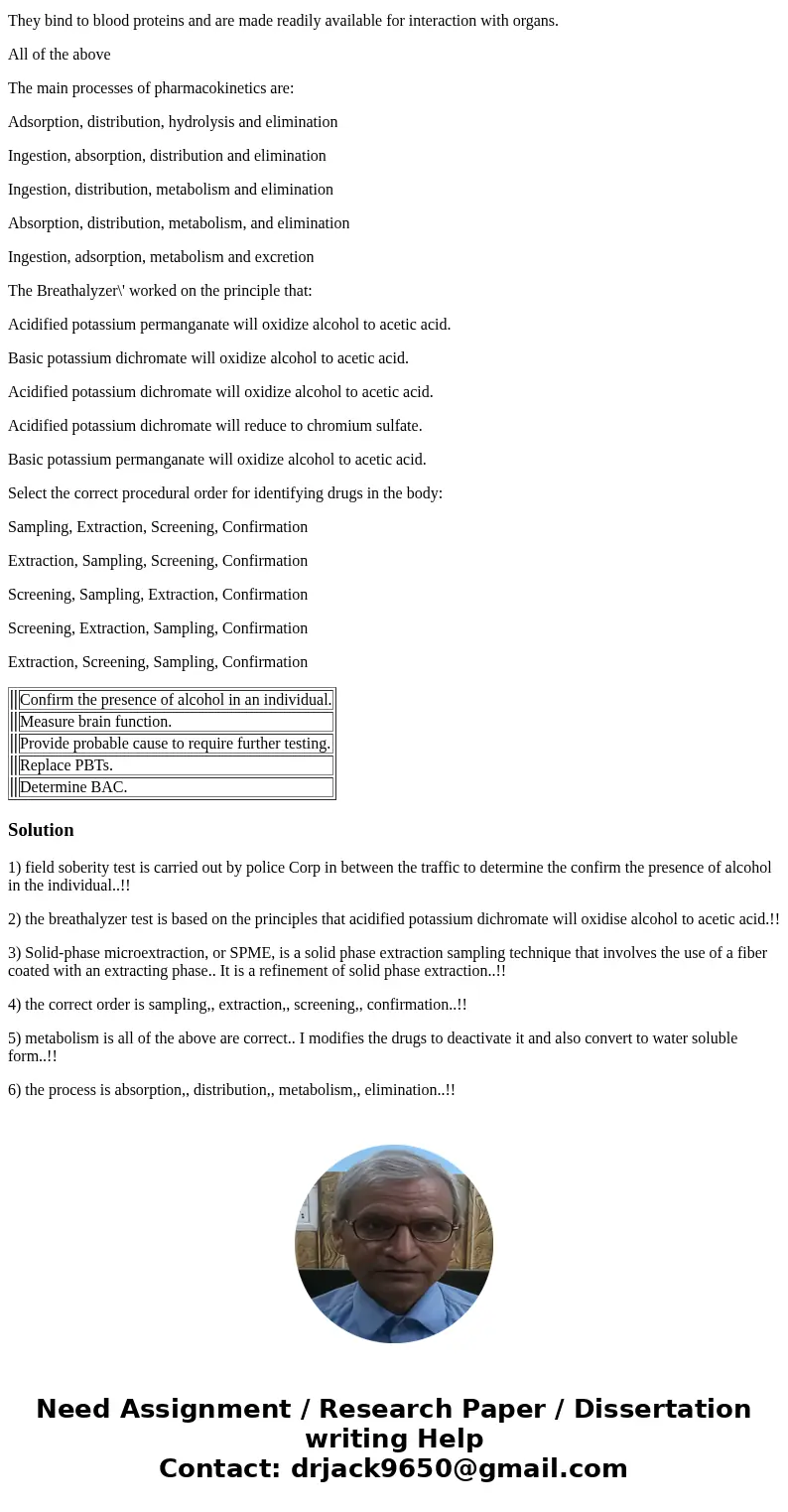Field sobriety testing is used to Confirm the presence of al
Field sobriety testing is used to:
Confirm the presence of alcohol in an individual.
Measure brain function.
Provide probable cause to require further testing.
Replace PBTs.
Determine BAC.
Metabolism:
Deactivates the drug.
Converts the drug into a substance that can be used for energy.
Creates substances that are more water soluble than the parent drug.
Converts ethyl alcohol to acetic acid.
All of the above
A forensic toxicologist must accomplish a number of tasks in order to reach conclusions about the role of a drug in causing a death. Which of the following is not one of these tasks?
Determine what metabolites are present
Determine the role that tolerance may play in a case
Determine the origin of all drugs and poisons present
Determine the identity of all drugs and poisons present
Determine the quantities of all drugs and poisons present
SPME is______________.
A confirmatory technique.
A screening test.
A refinement of solid phase extraction.
Best used for samples containing large amounts of a drug.
An immunoassay technique.
In all states the alcohol level that is defined as being \"under the influence\" of alcohol is currently_____.
0.05%
0.08%
0.10%
0.12%
0.14%
Elimination of alcohol takes place mainly in the liver and is controlled by what enzyme?
NAD
Alcohol dehydrogenase
Alcohol decarboxylate
Alcohol reductase
Alcohol oxidase
Because drugs are distributed through the bloodstream,
The concentration of the drug is the same everywhere.
The brain, heart and liver may be exposed to more of a given drug.
Tissue type is irrelevant in determining where the drug will collect.
They bind to blood proteins and are made readily available for interaction with organs.
All of the above
The main processes of pharmacokinetics are:
Adsorption, distribution, hydrolysis and elimination
Ingestion, absorption, distribution and elimination
Ingestion, distribution, metabolism and elimination
Absorption, distribution, metabolism, and elimination
Ingestion, adsorption, metabolism and excretion
The Breathalyzer\' worked on the principle that:
Acidified potassium permanganate will oxidize alcohol to acetic acid.
Basic potassium dichromate will oxidize alcohol to acetic acid.
Acidified potassium dichromate will oxidize alcohol to acetic acid.
Acidified potassium dichromate will reduce to chromium sulfate.
Basic potassium permanganate will oxidize alcohol to acetic acid.
Select the correct procedural order for identifying drugs in the body:
Sampling, Extraction, Screening, Confirmation
Extraction, Sampling, Screening, Confirmation
Screening, Sampling, Extraction, Confirmation
Screening, Extraction, Sampling, Confirmation
Extraction, Screening, Sampling, Confirmation
| Confirm the presence of alcohol in an individual. | ||
| Measure brain function. | ||
| Provide probable cause to require further testing. | ||
| Replace PBTs. | ||
| Determine BAC. |
Solution
1) field soberity test is carried out by police Corp in between the traffic to determine the confirm the presence of alcohol in the individual..!!
2) the breathalyzer test is based on the principles that acidified potassium dichromate will oxidise alcohol to acetic acid.!!
3) Solid-phase microextraction, or SPME, is a solid phase extraction sampling technique that involves the use of a fiber coated with an extracting phase.. It is a refinement of solid phase extraction..!!
4) the correct order is sampling,, extraction,, screening,, confirmation..!!
5) metabolism is all of the above are correct.. I modifies the drugs to deactivate it and also convert to water soluble form..!!
6) the process is absorption,, distribution,, metabolism,, elimination..!!



 Homework Sourse
Homework Sourse